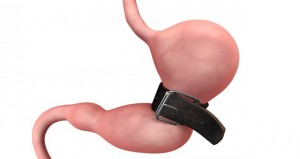Weight Loss Surgery and Going Vegan
 After a lifetime of obesity and various health problems, I chose to have irreversible restrictive weight loss surgery (vertical sleeve gastrectomy). Since then I have lost a lot of weight and adopted a healthy exercise and diet regimen. I have been trying to transition to veganism for a multitude of health and moral reasons, and find it difficult to ensure adequate daily protein and vitamin intake because the volume of food I can comfortably eat in one sitting is restricted to about four ounces of dense food. So now I’m wondering if it’s safe for me to be vegan. Is veganism possible after weight loss surgery?
After a lifetime of obesity and various health problems, I chose to have irreversible restrictive weight loss surgery (vertical sleeve gastrectomy). Since then I have lost a lot of weight and adopted a healthy exercise and diet regimen. I have been trying to transition to veganism for a multitude of health and moral reasons, and find it difficult to ensure adequate daily protein and vitamin intake because the volume of food I can comfortably eat in one sitting is restricted to about four ounces of dense food. So now I’m wondering if it’s safe for me to be vegan. Is veganism possible after weight loss surgery?
Good question. I asked some vegan dietitians – a couple specializing in bariatric surgery – for help. They mainly work with omnivores and were skeptical about being able go vegan. So, I decided to use their info about soy and pea protein powders and check out data at the United States Department of Agriculture’s website about protein intake.
It looks like soy isolate or pea protein is the way to go. I don’t know your height, but the average protein need is .36g per pound or .8g per kilogram of ideal body weight. I’m 65 inches and my ideal body weight, according to the American Dietetics Association, is 125 pounds. That means I need 45g of protein every day. That’s easy for me to get, however, I can eat a large volume of food. But, let’s see about you.
With just a 1/4 cup [118ml] of food per meal, you have to make every bite count. Below is what I found out about a couple sources of soy and pea protein:
Product |
Serving
|
Protein
|
| Infant formula |
100g [~1/3 Cup] | 13 |
| Trader Joe’s Soy Powder |
28g [~2T] | 25 |
| Fearn Soya Powder |
1/4 Cup | 10 |
| Pea Powder |
1/4 Cup | 10.7 |
So, adding some powders to your dishes should increase the protein to a sufficient amount. Keep in mind that the foods you are eating will have some protein in them even if you are chowing down on peaches.
In a more practical sense, if you had some tempeh [4 ounces/19g Protein] at one meal, seasoned veggies and protein powder or smoothies throughout the day you should be able to cover 40-50 grams of protein. Of course you need to have a number of meals.
I would also make sure you are taking a multi-vitamin supplement solid or liquid. In addition, make sure you are taking 1000 mcg of vitamin B12 every week. Unfortunately, in the United States we only have in-patient surgeries available to obese clients, whereas in Europe they have out-patient procedures as well. There is a balloon which can be placed out-patient into the stomach to do the same thing as the gastric sleeve – cut down on the space available for food. However, the balloon is removed six months later as opposed to the sleeve surgery which is not reversible. The idea of the balloon is to give the patient a six month timeframe to jump start healthier eating habits and examine their relationship with food. Some people have another balloon inserted later because they still need the help. Dietitians are also part of the healthcare system in Europe instead of being an added expense to the patient as is done in the US. Studies clearly show that seeing a registered dietitian while attempting weight management leads to more success.
I applaud you taking action about your weight and wanting to move to a more sustainable lifestyle. Hopefully, adding a few supplements to your daily regime will keep your weight management goals possible and your health viable.

